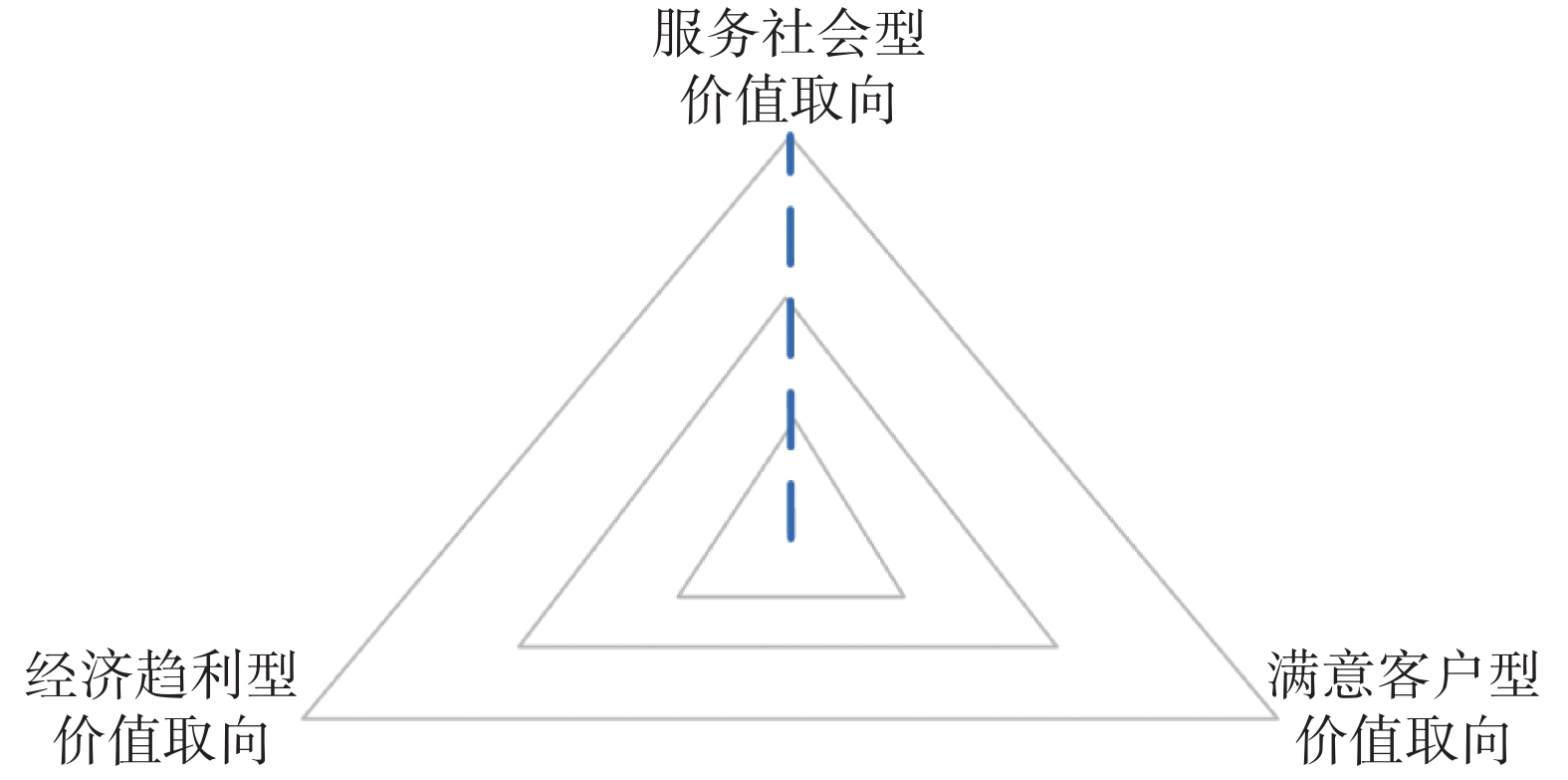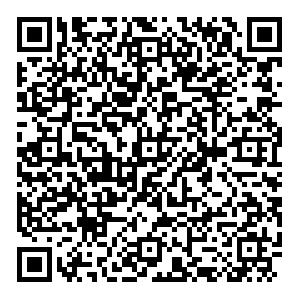Research on the Relationship Between Entrepreneurial Values and Mental Health of College Students
-
摘要: 在创业过程中,创业者价值取向对其心理健康有一定的影响。本文通过问卷对36所高校的1855名大学生创业者进行调研,实证检验大学生创业者价值取向与心理健康的关系,并对创业教育是否具有调节作用进行验证。研究发现,大学生创业者经济趋利型价值取向与心理健康存在显著相关关系,其满意客户型、服务社会型价值取向与心理健康存在弱相关关系。创业教育对经济趋利型价值取向存在显著调节作用,对满意客户型、服务社会型价值取向调节作用不显著。Abstract: In the process of entrepreneurship, values of entrepreneurs have a certain impact on their mental health. This paper investigated 1855 college entrepreneurs from 36 universities through questionnaires, empirically tested the connection between their values and mental health, and verified whether entrepreneurship education had a moderating effect. According to the survey, there is a significant correlation between profit-oriented value and mental health, and there is a weak correlation between satisfaction customer-oriented and social-service oriented value and mental health. Entrepreneurship education has a significant regulating effect on the profit-oriented value, but has no significant regulating effect on the satisfaction of the customer-oriented and the social-service oriented value.
-
Key words:
- innovation and entrepreneurship education /
- college students /
- values /
- mental health
-
表 1 正向心理状态问题
正向心理状态问题 因素负荷系数 您最近能将精力专注于你正在做的事情上? 0.656 您觉得自己在做有用的事情吗? 0.720 您觉得自己有能力对各项事情做决定吗? 0.677 能够享受你的日常生活吗? 0.746 能够正视自己的问题吗? 0.734 从各方面考虑,我都感到相当幸福? 0.700 Cronbach α系数 0.798 KMO取样适切性值和Bartlett球形检验P值 0.828和0.000 表 2 负向心理状态问题
负向心理状态问题 因素负荷系数 最近您因为担心焦虑而失眠? 0.680 经常感到紧张和压力? 0729 觉得自己无法克服困难? 0.737 最近您感到不开心或者沮丧? 0.782 对自己失去了信心了吗? 0.811 最近一直认为自己是一个没有价值的人? 0.782 Cronbach α系数 0.846 KMO值和Bartlett球形检验P值 0.835和0.000 表 3 量表设计的信度与效度分析
变量 Cronbach’s Alpha KMO值 显著性水平Sig 正向心理健康状态(FPH) 0.798 0.888 0.001 负向心理健康状态(NPH) 0.846 0.001 经济趋利型价值取向(EV) 0.894 0.500 0.001 满意客户型价值取向(CV) 0.951 0.902 0.001 服务社会型价值取向(SV) 0.907 0.861 0.001 创业教育(EE) 0.825 0.681 0.001 表 4 Pearson相关系数和双尾显著检验结果
变量 均值 标准差 (1) (2) (3) (4) (5) (6) (7) (8) (9) G 0.499 0.500 1 OB 2.233 0.822 −0.041 1 HI 3.389 1.193 −0.023 −0.379** 1 WE 1.832 0.760 −0.053* 0.061* −0.033 1 PH 2.966 0.349 −0.036 −0.019 0.032 0.106** 1 EV 4.587 1.089 −0.091** −0.072** 0.092** −0.031 0.172** 1 CV 4.935 1.079 −0.097** −0.067** 0.089** −0.023 0.117** 0.704** 1 SV 4.852 1.017 −0.111** −0.044 0.072** −0.031 0.123** 0.637** 0.862** 1 EE 4.523 1.108 −0.122** −0.066* 0.066** −0.066* 0.095** 0.503** 0.526** 0.558** 1 注:G表示性别、OB表示生源地、HI表示家庭月收入、WE表示工作经历、PH表示心理健康、EV表示经济趋利型价值取向、CV表示满意客户型价值取向、SV表示服务社会型价值取向、EE表示创业教育;*表示P<0.05,**表示P<0.01 表 5 大学生创业价值取向对心理健康影响及创业教育调节作用的回归分析
变量 模型Ⅰ 模型Ⅱ 模型Ⅲ 模型Ⅳ G(男性=1) −0.201* −0.132 −0.129 −0.124 OB(农村=0) 0.064 0.047 0.046 0.044 HI 0.048 0.028 0.028 0.028 WE 0.225** 0.239** 0.241** 0.238** EV 0.252** 0.246** 0.270** CV 0.010 0.100 −0.014 SV 0.093 0.084 0.097 EE 0.024 0.031 EV×EE调节作用 −0.085* CV×EE调节作用 −0.024 SV×EE调节作用 0.065 F统计量 9.209 17.784 15.592 11.946 R方 0.024 0.076 0.076 0.080 调整后R方 0.021 0.072 0.071 0.074 注:G表示性别、OB表示生源地、HI表示家庭月收入、WE表示工作经历、EV表示经济趋利型价值取向、CV表示满意客户型价值取向、SV表示服务社会型价值取向、EE表示创业教育、EV×EE表示创业教育对经济趋利型价值取向的调节作用、CV×EE表示创业教育对满意客户型价值取向的调节作用、SV×EE表示创业教育对服务社会型价值取向的调节作用;*表示P<0.05,**表示P<0.01 -
[1] 陈灿军. (2004). 略论大学生创业教育中的心理素质教育. 求索, (1),178—180. [2] 陈莹, 郑涌. (2010). 价值观与行为的一致性争议. 心理科学进展, (10),1612—1619. [3] 窦大海, 罗瑾琏. (2011). 创业动机的结构分析与理论模型构建. 管理世界, (3),182—183. [4] 杜建群, 杜尚荣. (2018). 大学生创新创业课程的价值取向与目标定位. 教育研究, (5),63—66. [5] 黄希庭. (2014). 探究人格奥秘. 北京: 商务印书馆. [6] 李元元. (2018). 新时代一流大学教育思想的体系建构与实现路径. 管理世界, (6),1—11. doi: 10.3969/j.issn.1002-5502.2018.06.001 [7] 宋佾珈, 张建新, 张金凤. (2014). 公务员的心理健康状况及与应酬压力、职业倦怠感生活满意度的关系. 心理卫生评估, (4),288—292. [8] 温忠麟, 侯杰泰, 张雷. (2005). 调节效应与中介效应的比较和应用. 心理学报, (2),268—274. [9] 吴颖. (2010). 孔孟义利观: 中国企业家社会责任的文化基础. 南京社会科学, (10),144—149+155. doi: 10.3969/j.issn.1001-8263.2010.10.023 [10] 赵薇. (2013). 先秦儒家“义利观”与企业家社会责任. 道德与文明, (2),147—151. doi: 10.3969/j.issn.1007-1539.2013.02.028 [11] Adner, R. and Kapoor, R. (2016). Innovation ecosystems and the pace of substitution: Re-examining technology S-curves. Strategic Management Journal, 37(4), 625—648. doi: 10.1002/smj.2363 [12] Allport, G. W. (1950). The individual and his religion: a psychological interpretation. Oxford, England: Macmilla. [13] Bergmann, H., Hundt, C. & Sternberg, R. (2016). What makes student entrepreneurs? On the relevance (and irrelevance) of the university and the regional context for student start-ups. Small Business Economics, 47(7), 53—76. [14] Biberhofer, P., Lintner, C., Bernhardt, J., & Rieckmann, M. (2019). Facilitating work performance of sustainability-driven entrepreneurs through higher education: The relevance of competencies, values, worldviews and opportunities. The International Journal of Entrepreneurship and Innovation, 20(1), 21—38. doi: 10.1177/1465750318755881 [15] Diener, E. , & Seligman, M. E. (2004). Beyond Money: Towards an Economy of Well-Being. Psychological Science in the Public Interest, 5(1), 1—31. doi: 10.1111/j.0963-7214.2004.00501001.x [16] Fauchart, E., & Gruber, M. (2011). Darwinians, Communitarians, and Missionaries: The Role of Founder Identity in Entrepreneurship. Academy of Management Journal, 54(5), 935—957. doi: 10.5465/amj.2009.0211 [17] Goldberg, D. P. (1978). Manual of the General Health Questionnaire. Windsor: NFER-NELSON Publishers. [18] Gorgievski, M. J., Stephan, U., Laguna, M., & Moriano, J. A. (2018). Predicting Entrepreneurial Career Intentions: Values and the Theory of Planned Behavior. Journal of Career Assessment, 26(3), 457—475. doi: 10.1177/1069072717714541 [19] Kautonen, T. & Palmroos, J. (2010). The impact of a necessity-based start-up on subsequent entrepreneurial satisfaction. International Entrepreneurship and Management Journal, 6(3), 285—300. doi: 10.1007/s11365-008-0104-1 [20] Lee, S. M. , Chang, D. , & Lim, S. (2005). Impact of Entrepreneurship Education: A Comparative Study of the U.S. and Korea. International Entrepreneurship and Management Journal, (1), 27—43. [21] Marilyn A. Uy, Shuhua Sun, Maw-Der Foo. (2017). Affect spin, entrepreneurs' well-being, and venture goal progress: The moderating role of goal orientation. Journal of Business Venturing, 32(4), 443—460. doi: 10.1016/j.jbusvent.2016.12.001 [22] Morris, M. & Schindehutte, M. (2005). Entrepreneurial Values and the Ethnic Enterprise: An Examination of Six Subcultures. Journal of Small Business Management: JSBM, 43(4), 453—479. doi: 10.1111/j.1540-627X.2005.00147.x [23] Khelil, N. (2016). The many faces of entrepreneurial failure: Insights from an empirical taxonomy. Journal of Business Venturing, 31(1), 72—94. doi: 10.1016/j.jbusvent.2015.08.001 [24] Powell, E. E. & Baker, T. (2014). It’s What You Make of It: Founder Identity and Enacting Strategic Responses to Adversity. Academy of Management Journal, 57(5), 1406—1433. doi: 10.5465/amj.2012.0454 [25] Rindova, V. , Barry, D. , & Ketchen Jr, D. J. (2009). Entrepreneuring as Emancipation. Academy of Management Review, 34(3), 375—381. doi: 10.5465/amr.2009.40631320 [26] Stets, J. E. , & Burke, P. J. (2000). Identity Theory and Social Identity Theory. Social Psychology Quarterly, 63(3), 224—237. doi: 10.2307/2695870 [27] Uy, M. A. , Foo, M. D. , & Song. Z. (2013). Joint effects of prior start-up experience and coping strategies on entrepreneurs’ psychological well-being. Journal of Business Venturing, 28(5), 583—597. doi: 10.1016/j.jbusvent.2012.04.003 [28] Yitshaki, R. ,& Kropp, F. (2016). Entrepreneurial passions and identities in different contexts: a comparison between high-tech and social entrepreneurs. Entrepreneurship & Regional Development, 28(3/4), 206—233. -






 下载:
下载:


